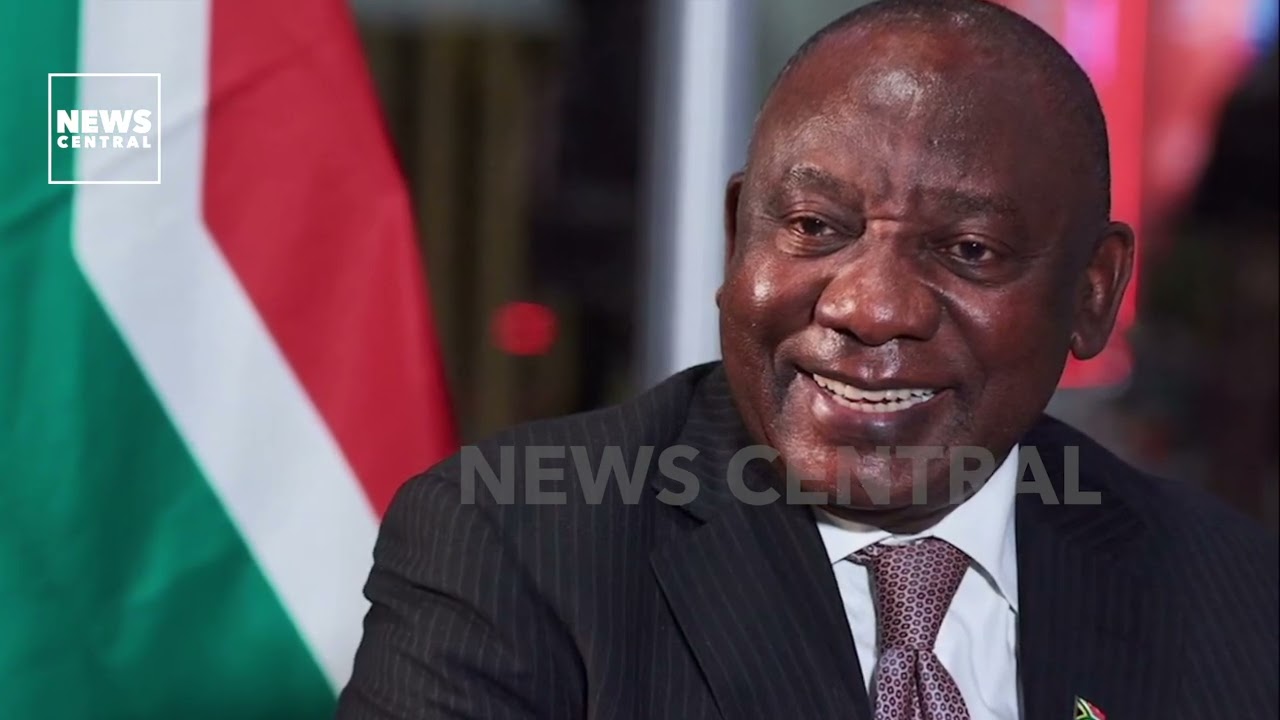How President Ramaphosa Was Cleared Of Wrongdoing In Phala Phala Farmscandal | The Conversation
Unleash Your Creative Genius with MuseMind: Your AI-Powered Content Creation Copilot. Try now! 🚀
In South Africa, President Cyril Ramaphosa finds himself in hot water as the country's anti-corruption watchdog accuses him of being involved in a cover-up scandal. The scandal revolves around the theft of large amounts of cash from his private game farm in June 2022. The allegations suggest that between $580,000 and $5 million of foreign currency was stolen from the farm, known as "Farmgate."
While Ramaphosa has been formally accused of attempting to conceal the theft of the cash, the preliminary report from the public protector has surprisingly cleared him of any wrongdoing. However, the head of the presidential protection unit has been criticized for directly investigating the case instead of reporting it to the police.
This scandal has put immense political pressure on Ramaphosa and nearly cost him his job in December. Although the report brings some relief to the president, a police investigation into the matter is still ongoing.
Section 2: Unwavering Opposition in Nigeria
Meanwhile, in Nigeria, the main opposition party, the Labour Party, shows no sign of backing down from challenging the results of the January 25th presidential elections. The party's legal team has petitioned the country's electoral umpire, the Independent National Electoral Commission (INEC), to inspect the materials used in conducting the elections.
Despite signing peace accords urging disgruntled parties to seek recourse in court rather than resorting to violence, the Labour Party has been vocal about its determination to fight for what it believes is its mandate. The party's presidential campaign council even threatened to hold protests if they were denied access to the election materials.
The sheer number of lawyers involved in this dispute raises questions about the Nigerian legal system and the efficiency of the court process. It's a spectacle that leaves one pondering how many people will have the opportunity to speak in court and why they consistently field a large team of senior advocates.
Section 3: Analysis and Debate
The preliminary report clearing President Ramaphosa of any wrongdoing sparks a debate among legal experts and political commentators. Mamodikwe, a public policy analyst, joins the conversation to provide further details about the Farmgate scandal and the specific allegations against Ramaphosa.
According to Mamodikwe, the public protector's preliminary findings are not the final report and have been leaked prematurely. He explains that these preliminary reports are meant to be sent to the individuals and parties involved for their responses. The leaking of the report raises questions about the motivations behind it.
The allegations against Ramaphosa include abuse of power and violation of the executive ethics code. Mamodikwe points out that the public protector is relying on technicalities and a definition of "paid work" to exonerate the president. However, evidence suggests that Ramaphosa actively participated in the affairs of his game farm, including discussions about potential buyers. This raises concerns about conflict of interest and improper conduct.
The implications of the report are not limited to Ramaphosa alone. The head of the presidential protection unit and others have also been implicated in the scandal. The question of potential consequences for these individuals arises, but Mamodikwe expresses skepticism, citing previous instances where accountability has been lacking.
Section 4: Conclusion and Analysis
While Ramaphosa may have received some relief from the preliminary report, the ongoing police investigation and the public's demand for accountability suggest that the scandal is far from over. The political pressure remains, and it remains to be seen how the court process will unfold.
In Nigeria, the Labour Party's refusal to back down highlights the importance and limitations of the legal system in addressing political disputes. The size of their legal team raises questions about the efficiency and effectiveness of the court process. In a society where courts are overwhelmed and justice is often delayed, the fight for justice can indeed be a daunting and lengthy battle.
Overall, these two cases exemplify the challenges faced by African nations in their pursuit of accountability and justice. While progress may be slow, the determination to seek justice and challenge the status quo is a step in the right direction. It is a testament to the resilience and courage of the African people in demanding a better future.

Related Recaps
- Chàng Gay bị CHA MẸ khinh rẻ chê bai và cái kết muốn TRẦM CẢM vì cô độc | Come Out đặc biệt
- İllüstrasyon Günlükleri 93 - Aseprite ile NES Renk Paleti ve Üç Karakter
- Chris Williamson - MAN UP! 🏋️ #Motivation #Inspiration #Encouragement #Confidence #Challenges
- Describe events in a story
- 'Foxconn Has Confirmed Its Participation In Karnataka..': BJP Spokesperson Ganesh Karnik